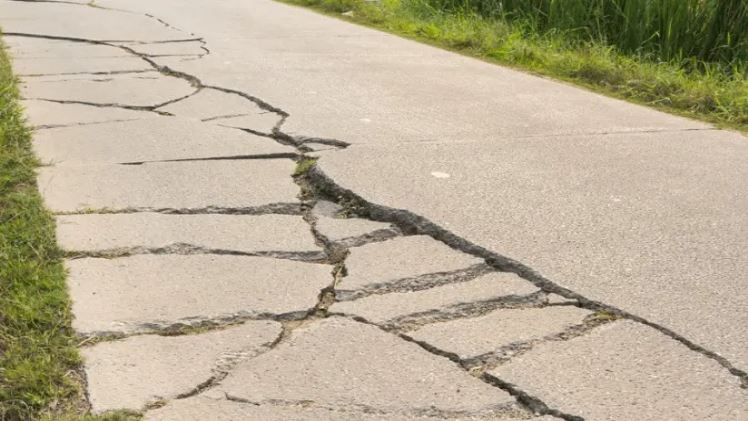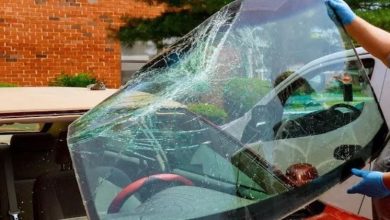Seismic-Resistant Driveway Replacement: Preparing for the Unexpected

If you live in an area where earthquakes frequently occur, you must take proactive measures to protect your property’s structural integrity and safety. Although many homeowners concentrate on strengthening their homes, it’s important to remember about other important aspects of your property, like your driveway. Rebuilding your driveway with seismic resistance is a wise investment that will shield your house and your loved ones in the event of an earthquake. This blog will discuss the value of replacing driveways that are resistant to earthquakes, the dangers of doing so, and the precautions you can take to protect your property.
Recognizing the Risk
Natural geological events like earthquakes can have disastrous effects on your property if you’re not ready for them. Any structure on the ground, including driveways, may be vulnerable to strong lateral forces and ground movement during an earthquake. An unreinforced or badly built driveway may sustain major damage that poses a risk to public safety and necessitates expensive repairs.
The Risks Associated with Ignoring Seismic-Resistant Driveway Repairs
- Safety Risks: Your family and guests may be seriously put in danger by a damaged driveway. Driveway surface cracks and displacement can cause people to trip and fall, which can result in injuries. A badly damaged driveway might even make it more difficult for emergency personnel to access your property.
- Property Damage: A misaligned or cracked driveway can depress the value of your home in addition to being unsightly. The possibility of having to replace or repair a damaged driveway may put off potential buyers, which would lower the value of the property.
- Higher Repair Costs: If you put off replacing your driveway with a seismic-resistant one, you may have to pay more for repairs later on. Large-scale repairs are frequently needed after an earthquake, which is more expensive and time-consuming than taking preventative measures.
- Shorter Lifespan: The lifespan of a damaged driveway will be shorter. Uneven surfaces and cracks can deteriorate over time if neglected, requiring more frequent repairs or replacement altogether.
The Advantages of Replacing Driveways with Seismic Resistance
- Increased Safety: A replacement driveway that is seismically resistant is made to withstand the lateral forces and ground movement brought on by earthquakes. This implies that you, your family, and your guests are less likely to be in danger during a seismic event due to your driveway.
- Protection of Your Property: The structural integrity of your property can be safeguarded with a seismic-resistant driveway. It assists in preventing secondary damage to your home, such as foundation problems or structural issues, by minimizing damage to the driveway itself.
- Cost Savings: Replacing a driveway with seismic resistance requires an upfront investment, but over time, there may be significant cost savings. After an earthquake, preventive measures usually prove to be more economical than extensive repairs or replacements.
- Property Value: Your home’s curb appeal and overall value can be improved with a reinforced and well-maintained driveway. A driveway upgrade for seismic resistance increases the likelihood that a buyer will be drawn to the property.
How to Protect Your Property with a Replacement Seismic-Resistant Driveway
- Evaluation: Begin by evaluating the state of your current driveway. Keep an eye out for any damage indicators, uneven surfaces, or cracks. Think about how old your driveway is and if it has been seismically reinforced.
- Speak with Experts: Speak with qualified engineers or contractors who specialize in replacing driveways that are earthquake-resistant. They are able to evaluate the particular needs of your property and make recommendations for suitable design and construction.
- Design Considerations: Consult experts to create a driveway that is both aesthetically pleasing and seismically resistant for your home. This could entail picking suitable surface treatments, reinforcing methods, and materials.
- Regulations and Permits: Make sure that, in order to replace your driveway with seismic resistance, you have all the required permits and adhere to all local building codes. This guarantees that safety regulations are met by your project.
- Reinforcement Techniques: Fiber-reinforced concrete, expansion joints, dowels, and appropriate grading are a few examples of the reinforcement techniques that may be used in seismic-resistant driveway replacement Charlotte. During earthquakes, these methods aid in making the driveway more resilient to ground movement.
- Appropriate Installation: The driveway’s seismic resistance depends on its proper installation. Construction should be left to skilled experts who will make sure all design requirements and reinforcing methods are followed to the letter.
- Regular Maintenance: To guarantee that a driveway that is seismically resistant doesn’t fail, regular maintenance is necessary. Frequent inspections and small repairs can assist in finding problems early on and resolving them.
- Emergency Planning: Take into account how you will assess your driveway for damage following an earthquake as part of your preparedness plan for seismic activity. It’s critical to evaluate any possible risks prior to resuming driveway use.
In Summary
Replacing your driveway with one that is seismically resistant is an essential part of being ready for earthquakes and shouldn’t be disregarded. Ignoring the need for reinforcement can result in increased repair costs, property damage, safety risks, and a decline in value. However, making the investment in a seismically resistant driveway will improve safety, safeguard your property, reduce expenses, and raise the value of your home.
Examine your driveway’s condition, speak with experts such as https://www.ventureconcreteclt.com/, and take the required precautions to make sure it can withstand seismic activity in order to protect your loved ones and property. You’ll safeguard your investment and increase your home’s safety and resilience against unanticipated earthquakes by taking this action.





